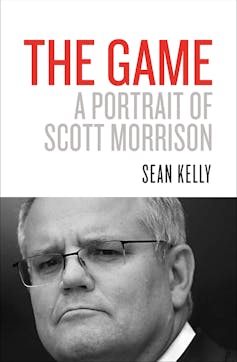
“How can you tell if a politician is lying?” It is a favourite joke of my grandfather’s, and the punchline is all too obvious: “His mouth will be moving.”
The joke gives succinct expression to a cynicism that has shaped Australian politics since the introduction of self-government in the 1850s. The implication, of both the joke and the culture informing it, is that the politician’s lies reflect solely on their kind and reveal nothing about the rest of us.
In his newly published profile of Prime Minister Scott Morrison, Sean Kelly flips this way of thinking on its head. The Game offers many powerful and revealing insights into Morrison’s career and the tricky political tactics that have characterised it. But the most important revelations in this book are about the society that created our prime minister, and the structures and cultures that facilitated his path to the Lodge.

Authors: Joshua Black, PhD Candidate, School of History, National Centre of Biography, Australian National University
Read more





